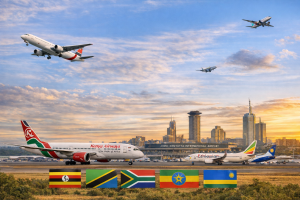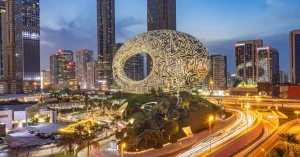Fewer trips to India and other “medical tourism” destinations by Africa’s middle class is one anticipated result of a surge of investment into medical facilities, says a just-released report, which also highlights the opportunity for these facilities to mint money treating lifestyle diseases as Africa’s middle class rapidly expands.
The number of Africa’s own regional medical tourism destinations is also seen rising beyond South Africa, Morocco, Egypt, and Tunisia—which currently have the most advanced medical facilities on the continent—according to Research and Market’s Medical tourism 2022: Africa potential.
According to the report, “winds of change are sweeping across African medical tourism.” 11 countries top a list of those looking to take in more patients from other jurisdictions within Africa—as well as outside the continent—in the coming year.
“Once seen as just a source for other medical tourism destinations, some African countries have taken stock and have or will seek to increase inbound medical tourism and reduce outbound medical tourism,” says the report.
Newer hubs are coming up in Africa for medical tourism
Algeria, Ghana, Ivory Coast, Kenya, Mauritius, Nigeria, Rwanda, and Tanzania are newly-listed markets with the potential to help the continent save millions of dollars spent every year in the world’s key medical tourism markets, like India and the UK.
“Outbound medical tourism costs African countries millions of dollars in exchange revenue so they seek to fight back,” according to the report.
The Research and Markets report shows that Angola, Botswana, Burundi, Congo, and Eswatini are among 12 local sources that could significantly boost intra-Africa tourism and trade revenues. Ethiopia, Lesotho Libya, Mozambique Uganda, Zambia, and Zimbabwe are also key medical tourism sources that do not fall under either potential or existing destinations.
“Medical tourism in 2022 and beyond will not be a restart of how it was left in 2019 and earlier as there is no guarantee that previous trends will return,” says the report.
The report analyzes how different countries are improving healthcare as well as how medical tourism and insurance plans offered by both private and government institutions are changing and says that the pandemic has changed rules of engagement ‘forever’.
Since the outbreak of covid-19, African countries have been aggressively putting up more modern and advanced medical facilities as top medical researchers return to the continent to bolster the local capacity of medical research.
Last month, Kenya launched its Integrated Molecular Imaging Center and Hospitality Center, a cancer treatment center equipped with a 100-person hostel facility. Kenya’s President, Uhuru Kenyatta said it will save Kenyans the over $89 million they spend on cancer treatment outside the country each year.
Ghana made history by building a 100-bed capacity infectious Disease Center (GIDC)—now a referral for patients in need of intensive critical care—during the pandemic, by leveraging private sector and government funding. Last year, the west African country also announced plans to build a 1100-bed health institution dubbed Eco Medical Village to position itself as the next medical tourism destination for Africans.
Investment into medical facilities in Africa has also seen regional investment, with Egypt’s Minister of Health and Population Hala Zayed flying to Uganda in October to witness the inauguration of the AFRI Egypt Medical Centre, an Egyptian investment in high tech health facilities in Jinja.
In August, Rwanda and Senegal were picked by covid-19 vaccine maker BioNTech for local production of malaria and tuberculosis vaccines. Nigeria also launched Africa’s first private lab for human whole-genome sequencing, following a $15 million fundraise by start-up, 54Gene last year.
Meanwhile, medical professionals who might previously have flown abroad to look for greener pastures are opting to stay home. Some, like medical doctor and entrepreneur, Maxwell Okoth, founder of the 100-bed Ruai Family Hospital in Kenya, have begun investing in private medical facilities, instead.
These trends, together with plans by the Africa Union and Africa Center for Diseases Control and Prevention (CDC) to build local capacity to manufacture 60% of covid-19 vaccines locally by 2040, looks set to shift the face of Africa’s medical tourism.
Medical Tourism Index 2020/2021 by Medical Tourism Association tracks the world’s top 46 medical tourism destinations. It ranks South Africa (22), Egypt (26), Morocco (31) and Tunisia (38) as the top destinations in Africa.
Source: Quartz Africa






